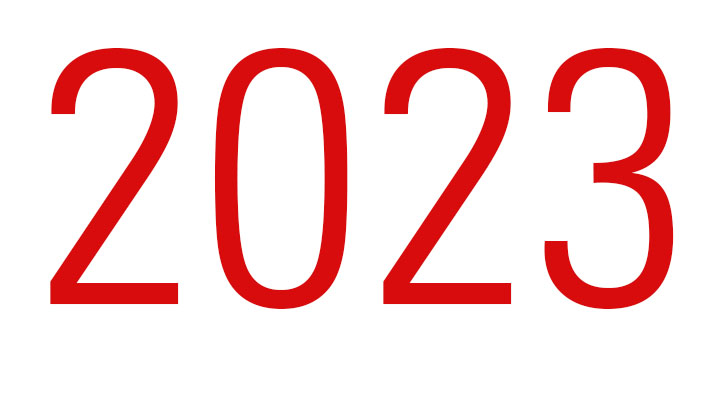
2022 confounded predictions and humiliated soothsayers inside and outside of financial services. From war in Ukraine to rapid inflation and the dramatic political reality of having three prime ministers in the space of three months, it’s safe to say this year was unique.
Rather than pinning our prediction flags to the mast of conventional thinking and readying ourself for outright humiliation come December 2023, then, the Morningstar UK team has assembled a slightly off-piste, open-ended set of possibilities that could shape next year.
A Major Leadership Shift Changes History: The deaths of important political figures can send shockwaves through societies and precipitate major change. In the UK, there was no cataclysm when Queen Elizabeth II died in September, but there’s little doubt a new era has begun. Will that happen again in 2023?
When Russian tanks rolled over the Ukraine border in February this year, most people thought Vladimir Putin’s military was mounting a pretty mighty operation. But with every important Ukrainian tactical victory has come much more difficult questions.
In the field, Putin’s armies have proven themselves under-resourced and ineffective, and all that has done is raise the likelihood of escalation by other military means. Those who ask how the conflict will end haven’t been able to see an easy resolution, and with good reason.
It is now clear Ukraine will not surrender. Likewise, it’s unlikely Russia will either, regardless of its military woes. Does that mean the only route out of the stalemate is Putin’s physical demise? Media reports seem to suggest the Russian president is battling serious health problems. While there are doubtless loyalists to take his place, it could also pave the way for a de-escalation, and a re-writing of the record that saves Moscow from outright humiliation.
The World is Gripped by a New Health Crisis
Nearly three years on from the UK’s initial Covid-19 lockdown in March 2023, popular retellings of the event still emphasise the shock factor that flipped our lives upside down. A certain politician from a certain ITV reality TV show would certainly like you to believe our leaders did their best with the means at their disposal, and in uniquely difficult circumstances.
A more considered reading of the situation would posit that westernised countries were not in any way sufficiently prepared for a pandemic, and – furthermore – successive governments of different stripes had been warned about the likelihood of a major health scare involving airborne disease.
While it’s now widely accepted the general public must live with the risk of Covid-19, few conversations have turned to the possibility of what could come next. There’s no doubt huge lessons have been learned about protecting the public’s health during an emergency like Covid-19. Will they be put to the test once more in 2023? As this list suggests, Covid-19 is not the only thing we might worry about.
The UK’s Economic Pain Lets Up
There’s not a lot of good news for the UK at the moment. For many adults, inflation is at its highest level in living memory, and – according to the Office for Budget Responsibility’s own reckonings in the Autumn Statement, it’s now likely we’re in recession. We’ll find out this week (December 15) what the Bank of England’s latest decision is on interest rates (currently at 3%) as well as its thoughts on when the recession will end.
A pessimist might put the return to growth date at some point in 2024, though the Bank has said it’s possible the recession will end in 2023. In its November monetary report the BoE said it expected inflation to fall "sharply" from the middle of next year, which – if it happens – would likely be the result of decreased economic activity feeding through into lower prices. Given the Bank’s track record of poor predictions in 2022, though, its modelling now has to be taken with a pinch of salt! It says a lot when a central bank is the new wild card.
A General Election Could Change The UK’s Course
Given everything that happened this year, is it really that ambitious to suggest there could be a general election in 2023? Three things make it a possibility.
For starters, the fixed-term parliaments act was repealed in 2022, and opens the door to an election outside the five-year window set in stone by the coalition government.
Secondly, though there is no doubt Rishi Sunak is governing in a different way to predecessors Liz Truss and Boris Johnson, he only has a political mandate from his Party. The one thing standing in his way of winning a general election is now a resurgent Labour Party, but even Keir Starmer knows victory isn’t guaranteed. Starmer is presumably desperate to avoid another 1992 moment, when Labour (under Neil Kinnock) lost to the Conservatives despite leading in the polls. Whatever happens, it'll be a huge gamble.
Markets Have an Amazing Year
It’s not been a brilliant year for markets. The FTSE 100 is down year-to-date (-0.64%), the Nasdaq is down even further (-29.09%), and the S&P 500 barely looks better (-16.06%). In Japan, the Nikkei 225 shows a similar picture (-3.89%) and the German DAX is similarly in S&P territory (-10.21%). Over in China the SSE composite index is doing no better year-to-date (-15.25%). Will there be a terrific rebound in 2023? That would certainly depend on stabilising inflation, supply chain certainty, and a de-escalation of geopolitical tensions. As climate risk becomes an ever-more-important part of corporate performance, there may also need to be better signs the business world is prepared for Net Zero. Unfortunately, there is every indication investor concerns are – at the moment – somewhat short-term.











.jpg)
















